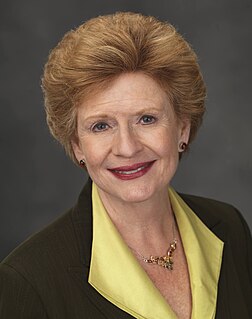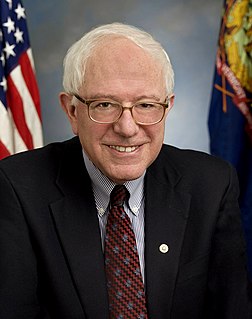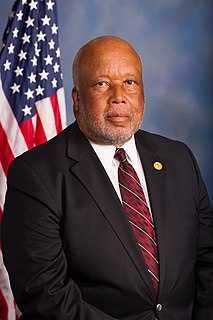Democracy Day is the tentative name of a possible federal holiday in the United States, proposed by Democratic Representative John Conyers of Michigan.

The United States of America (USA), commonly known as the United States or America, is a country composed of 50 states, a federal district, five major self-governing territories, and various possessions. At 3.8 million square miles, the United States is the world's third or fourth largest country by total area and is slightly smaller than the entire continent of Europe's 3.9 million square miles. With a population of over 327 million people, the U.S. is the third most populous country. The capital is Washington, D.C., and the largest city by population is New York City. Forty-eight states and the capital's federal district are contiguous in North America between Canada and Mexico. The State of Alaska is in the northwest corner of North America, bordered by Canada to the east and across the Bering Strait from Russia to the west. The State of Hawaii is an archipelago in the mid-Pacific Ocean. The U.S. territories are scattered about the Pacific Ocean and the Caribbean Sea, stretching across nine official time zones. The extremely diverse geography, climate, and wildlife of the United States make it one of the world's 17 megadiverse countries.

The Democratic Party is one of the two major contemporary political parties in the United States, along with the Republican Party. Tracing its heritage back to Thomas Jefferson and James Madison's Democratic-Republican Party, the modern-day Democratic Party was founded around 1828 by supporters of Andrew Jackson, making it the world's oldest active political party.

John James Conyers Jr. is an American politician of the Democratic Party who served as a U.S. Representative for Michigan from 1965 to 2017. He is now retired. The districts he represented always included part of western Detroit. During his final three terms, his district included many of Detroit's western suburbs, as well as a large portion of the Downriver area.
Contents
Conyers' proposed the holiday in Resolution (H.R.) 63 - Democracy Day Act of 2005. The bill called for the Tuesday after the first Monday in November of every even-numbered year, Election Day, to be a legal public holiday. The purpose of the holiday was to increase voter turnout by giving citizens more time to vote, as well as to allow for the opening of more polling places with more workers while raising awareness of the importance of voting and civic participation.

In the United States, Election Day is the day set by law for the general elections of federal public officials. It is statutorily set as "the Tuesday next after the first Monday in the month of November" or "the first Tuesday after November 1". The earliest possible date is November 2, and the latest possible date is November 8.
The bill was referred to the House Committee on Oversight and Government Reform in January 2005 and ultimately had 110 co-sponsors. The bill has since lapsed and would need to be reintroduced before the proposal could be reconsidered.
A companion resolution was introduced in the Senate on May 26, 2005, by Democratic Senator Debbie Stabenow of Michigan. It was co-sponsored by Democratic Senators Mary Landrieu of Louisiana and Carl Levin of Michigan. The companion resolution did not leave the Senate Committee on the Judiciary and has now also lapsed.

Deborah Ann Greer Stabenow is an American politician who is the senior United States Senator from Michigan and a member of the Democratic Party. She is Michigan's first female U.S. Senator and was elected to the Senate in 2000. Before her election to the Senate, she was a member of the House of Representatives, representing Michigan's 8th congressional district. Previously she served on the Ingham County Board of Commissioners and in the Michigan State Legislature.

Mary Loretta Landrieu is an American politician, entrepreneur, and former U.S. Senator from the state of Louisiana. She is a member of the Democratic Party.

Carl Milton Levin is an American attorney and retired politician who served as a United States Senator from Michigan from 1979 to 2015. He was the chair of the Senate Committee on Armed Services and is a member of the Democratic Party.
The bill was reintroduced on Nov. 12, 2014, by independent Senator Bernie Sanders. It has not been enacted. [1]

Bernard Sanders is an American politician who has served as the junior United States Senator from Vermont since 2007. The longest-serving Independent in congressional history, he was elected to the U.S. House of Representatives in 1990 and caucuses with the Democratic Party, enabling his appointment to congressional committees and at times giving Democrats a majority.
Other movements to enact the holiday are Election Holiday and ElectionDay.org











